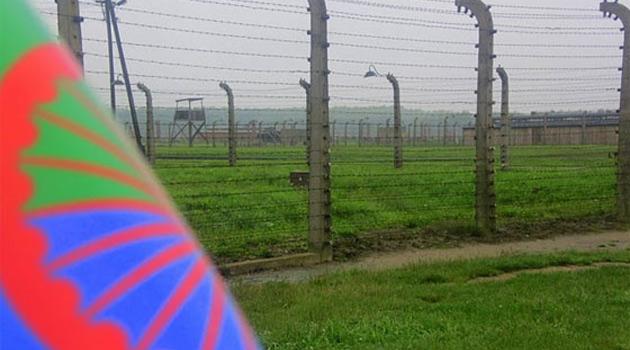LIVE BROADCAST from the Auschwitz Memorial: Commemoration of Roma Holocaust Memorial Day on 2 August, the day the Nazis murdered as many as 4,300 Romani men and women
Tuesday, 2 August marks 78 years from the tragic night in 1944 when the Nazis murdered those imprisoned in what was called the “Gypsy Family Camp” at Auschwitz-Birkenau. In the gas chambers of the concentration camp, despite active resistance, they murdered as many as 4,300 Romani people into the early morning hours of 3 August, according to the most recent studies.
Annually on 2 August Romani people from all over Europe mark this day as Roma Holocaust Memorial Day. This year’s remembrance will take place as is traditional directly at the site of the Auschwitz Concentration Camp.
In Prague, these Holocaust victims will be commemorated on Náměstí Míru at 19:00, when an event called Leperiben: My nezapomínáme (We Will Never Forget) takes place. The commemoration will take the form of a play based on the testimonies of eyewitness survivors, performances of Romani music, and reading the names of the victims aloud.
The Polish Parliament established 2 August as that country’s official Annihilation of the Roma and Sinti Memorial Day in 2011. In 2015, the European Parliament recognized 2 August as the European Memorial Day of the Holocaust of the Sinti and Roma.
The memorial day did not have to fall on 2 August in particular, as the Nazis had attempted to annihilate those imprisoned in what was called the “Gypsy Camp” at Auschwitz even before then, but were prevented from doing so when the imprisoned Roma rebelled. It was first assumed that the uprising happened on 16 May 1944, which is also usually called Roma Resistance Day, but the latest study mentioned above reports it happened at the beginning of April that year.
Moreover, that most recent study published by the Auschwitz Memorial and Museum states that the imprisoned Roma actively defended themselves in August 1944 as well. “Thanks to new research, today we know that passive resistance in the camp for Roma in Birkenau happened not on 16 May, but at the beginning of April 1944. Active resistance happened during the destruction of that sector in August, when more than 4,200 Romani people were murdered,” the study says.
During the 17 months of the existence of what was called the “Gypsy Family Camp” (February 1943 to July 1944) as many as 23,000 children, men and women were imprisoned there. Approximately 21,000 Roma and Sinti prisoners died in the camp.
Other imprisoned Roma were murdered in the concentration camps of Bełżec, Chełmno, Majdanka, Sobibór and Treblinka. Still others, the number of whom it is difficult to estimate, were shot to death and buried in mass graves in the forest.
The extermination policy of Nazi Germany led to the deaths of an estimated half a million Roma and Sinti from all over Europe. Some estimates put the number as high as 800,000 victims, or anywhere between one-quarter and one-half of the prewar population of Roma.
